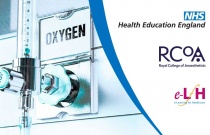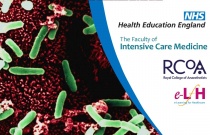Diabetes - Module A: Prevalence and Pathophysiology of Diabetes Mellitus
Arlene J. Chabanuk, MSN, RN, CDE, HCS-D
1.25 Hours
Diabetes mellitus (DM) is a chronic metabolic disease that affects nearly 26 million Americans—and could affect many more in the years to come. This module covers the four different types of diabetes—the most common types being type 1 (T1DM) and type 2 (T2DM)—along with their particular risk factors, symptoms and pathophysiologi....
Breathing Attacks
Allison Brown
2.00 Hours
Vocal Cord Dysfunction (VCD) is an inappropriate closure of the vocal cords during respiration, creating an airway obstruction that most significantly affects athletes during activity. VCD is often misdiagnosed as asthma, often leading to ineffective treatment. The speech pathologist plays a vital role working within a multidisc....
Reducing Stress and Preventing Burnout
Jeanne Demory Post MSW, LCSW
0.25 Hours
The long term care setting has its own set of unique challenges in rehab, both for the patients and for the therapists. Feelings of hopelessness, helplessness, detachment, and cynicism; physical symptoms including increased blood pressure, headaches, and stomach upset; diminished productivity and lack of concentration are signs....
Behavioural Management Techniques In The Anxious Patient
Kathy Wilson
This session describes what is meant by the term ‘behavioural management’ and identifies some behavioural management techniques used for the dental patient. The advantages and disadvantages of specific behavioural management techniques will be presented.
Periodontal Pathogenesis
Mike Milward and John Matthews
This session will provide key information on periodontal disease pathogenesis, including the bacteria involved, host/bacterial interactions and the role of host response, with particular emphasis on hyper-responsive neutrophils and the role of antioxidants.
Assessment of Benign Soft Tissue Lesions of the Oral Cavity
Maria Devine, Tara Renton
0.50 Hours
The aim of this session is to enable the practitioner to assess and diagnose benign soft tissue lesions of the oral cavity.
Cancer in Women
Suzanne Mahon, RN, DNSc, AOCN, AGN-BC
30.00 Hours
The experience of a woman diagnosed with cancer can be distinctive. Many cancers affect both males and females, but some are unique to women and impact women during childbearing years. The impact of a cancer diagnosis for either a man or a woman can be devastating and have a cascading impact on the immediate and extended family.....
Personal Assistant Services in General Population Shelters
U.S. Department of Homeland Security
1.00 Hours
Personal Assistance Services (PAS) are services that enable children and adults to maintain their usual level of independence in a general population shelter. This CEU course provides guidance to emergency and shelter planners for the development of PAS for children and adults with and without disabilities who have access and f....
Pre-pregnancy Counselling
Melissa Sayer
0.50 Hours
This session looks at the importance of pre-conception care and advice. It highlights the importance of maternal health and well-being prior to pregnancy. At the end of the session you should be confident to advise women about health issues relevant to conception and pregnancy.
Childhood Sepsis
James Larcombe
0.50 Hours
This session covers children aged 11 years and under. For children aged 12 years and over refer to the adult session. The session is aimed at all out of hospital clinicians, GPs, Nurses, Paramedics, Community Midwives and those providing urgent or unscheduled care. It will provide an introduction to key facts about childho....
Cardiovascular Physiology - The Cardiovascular System (anaesthesia)
Fred Roberts FRCA
0.50 Hours
This session outlines the essential features and physiological principles of the cardiovascular system that are relevant to anaesthesia.
Respiratory Physiology (anaesthesia)
Fred Roberts FRCA
0.50 Hours
This session outlines the essential features and physiological principles of the respiratory system, as relevant to anaesthesia.
Checking the anaesthetic machine
Tom Clutton-Brock
0.50 Hours
The session covers the essential checks that should be undertaken before using an anaesthetic machine, guidelines for using each type of machine and how to use emergency gas supplies.
Checking Other Anaesthetic Equipment
Vennila Rajagopal
0.50 Hours
The session covers the essentials of checking the breathing systems and additional equipment required to administer a safe anaesthetic.
Common Equipment Problems (anaesthesia)
Rich Kaye
This session highlights some common equipment problems and ways to prevent and deal with them.
Analgesia and Antiemetics
Jeremy Nightingale
0.50 Hours
This session will cover the assessment and treatment of post-operative pain and management of early post-operative nausea and vomiting (PONV).
Anaphylaxis
Ross McDowell and Dr Euan Mackay
This session covers the pathophysiology of anaphylactic and anaphylactoid reactions, their presentation, intraoperative and subsequent management and the follow-up required.
Predictors of Critical Illness and Scoring Systems
John Griffiths and Joy Halliday
0.50 Hours
This session defines the mortality rate for patients admitted to ICUs in the UK and discusses important aspects of severity of illness scoring systems that are applied to this population. This session also looks at the longer-term non-mortality outcomes experienced by ICU survivors such as overall health-related quality of life,....
Classification of Shock
Jeremy Bewley
0.50 Hours
This session describes the classification of shock.
Oxygen Therapy
Gavin Perkins and Vivekanathan Poongavanam
0.50 Hours
Oxygen is one of the most commonly used drugs in the hospital, especially in patients with or at risk of critical illness. This session will outline the principles of safe oxygen administration in critically ill patients.
CEACCP: Hyperbaric oxygen therapy
Andrew David Pitkin MRCP Nicholas John Hawksley Davies DM MRCP FRCA
0.50 Hours
Hyperbaric oxygen therapy increases arterial oxygen content by greatly increasing the amount of oxygen dissolved in plasma.
CEACCP: Extracorporeal membrane oxygenation in adults
Guillermo Martinez MD and Alain Vuylsteke MD FRCA FFICM
0.50 Hours
Extracorporeal membrane oxygenation (ECMO) is the use of a modified heart–lung machine to provide respiratory, circulatory, or both support at the bedside, usually for at least a number of days or even weeks.
CEACCP: Principles of intra-aortic balloon pump counterpulsation
Murli Krishna MBBS FRCA FFPMRCA Kai Zacharowski MD PhD FRCA
0.50 Hours
Intra-aortic balloon pump (IABP) remains the most widely used circulatory assist device in critically ill patients with cardiac disease. The National Centre of Health Statistics estimated that IABP was used in 42 000 patients in the USA in 2002. Advances in technology, including percutaneous insertion, smaller diameter cathete....
Diarrhoea in ICM
Simon Sparkes
0.50 Hours
This session describes the common causes of diarrhoea in critical care and includes infection control practices, management strategies and the complications that can occur.
























